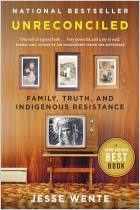Зарегистрируйтесь на getAbstract, чтобы получить доступ к этому краткому изложению.

Зарегистрируйтесь на getAbstract, чтобы получить доступ к этому краткому изложению.
Troy Sebastian (NUPQU ʔA·Kǂ AM̓)
Nuchatlaht First Nation: How a Legal Battle Could Change Land Rights for Good
Indigenous groups have been fighting for land for decades, often with disappointing results
The Walrus, 2023
Что внутри?
How will Canadian Indigenous people put a landownership victory in court to long-term use?
Recommendation
More than two decades ago, developers in British Columbia wanted to build a ski resort on land sacred to the indigenous Ktunaxa Nation, who rejected the proposal. The provincial government approved it. After years of litigation at each level of appeal, Canada’s Supreme Court dismissed the Ktunaxa’s case in 2017. That year, Walter Michael, the late head chief of the Nuchatlaht Nation, went to court over his First Nation’s land rights, as Troy Sebastian (NUPQU ʔA·Kǂ AM̓) reported in The Walrus in 2023. After years of lawsuits, the BC Supreme Court granted the Nuchatlaht a partial victory on April 29, 2024 by confirming their rights to a remote, four-mile-long strip on Nootka Island, including a salmon stream, a lake, and forests threatened by logging. As reported in The Seattle Times, this victory could inspire the province’s 200 other First Nations to bring their cases to court. The ruling makes the Nuchatlaht Nation – population 160 – the second largest First Nation titleholder in the province.
Summary
About the Author
Ktunaxa writer Troy Sebastian (NUPQU ʔA·Kǂ AM̓) has also published work in The Malahat Review, The New Quarterly, and Quill & Quire.
















Comment on this summary